Magnitude 5.7 Earthquake Hits Southern Iran
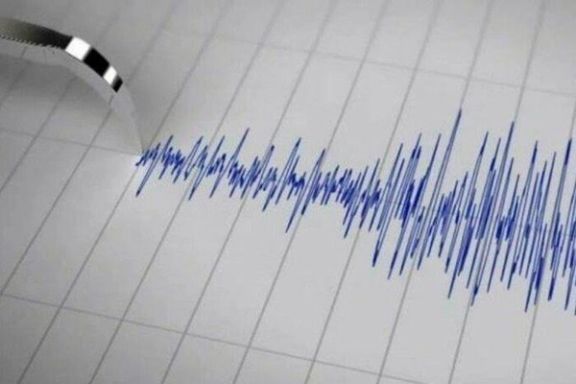
An earthquake of magnitude 5.7 has struck the southern Iranian Hormozgan Province.

An earthquake of magnitude 5.7 has struck the southern Iranian Hormozgan Province.
Iranian state TV reported that rescue teams are dispatched to the quake-hit area in Bandar Lengeh adding that no casualties reported.
The quake was felt in the United Arab Emirates, the European-Mediterranean Seismological Centre (EMSC) said.
The quake was at the depth of 15 kilometers hitting an area 57 km northeast of Bandar Lengeh.
Iran is crisscrossed by major geological fault lines and is one of the most earthquake-prone countries in the world because it is located where the Arabian, Indian, and Eurasian tectonic plates meet.
Iran has had a terrible history of massive earthquakes in recent decades, with some killing up to tens of thousands of people and causing billions in damages, such as the magnitude 6.6 quake in Kerman province in 2003 that killed 31,000 people and flattened the ancient city of Bam.
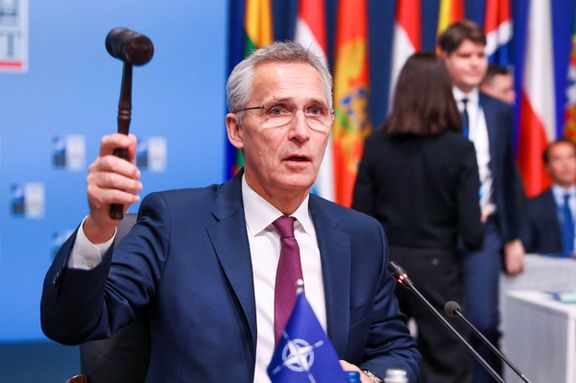
NATO has warned the Islamic Republic that it should not provide Moscow with arms and ammunition in its war against Ukraine.
At a meeting of foreign ministers of the defense alliance’s members in Bucharest on Tuesday, NATO Secretary-General Jens Stoltenberg said Russia has asked Iran to provide it with weapons because it was “running low on ammunitions.”
“We are saying very clearly that no country should support Russia’s illegal war, and therefore, Iran and no other country should provide Russia with missiles, drones or anything else that can help them to continue this brutal war of aggression against Ukraine,” added Stoltenberg.
He further noted that Iran and no other country should provide Russia with “missiles, drones or anything else that can help them to continue this brutal war of aggression against Ukraine.”
Elsewhere in his remarks, Stoltenberg stated that Vladimir Putin's brutal invasion of Ukraine is failing in Ukraine.
Russia has been using Iranian drones in its air attacks against the Ukrainians. In October and November, it targeted Ukraine’s civilian energy infrastructure, plunging it into blackouts as the winter cold has begun across the country. Amid international outcry over the Islamic Republic’s supply of drones for the Russian invasion, Ukrainian President Volodymyr Zelenskiy told a meeting of UN security council November 23, that the attacks are “an obvious crime against humanity” adding that Kyiv would put forward a resolution condemning “any forms of energy terror”.
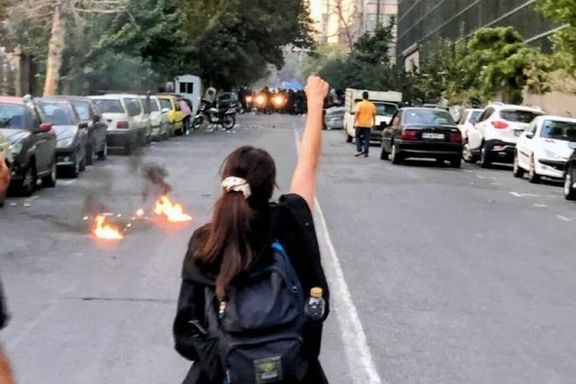
A Revolutionary Court of the Islamic Republic will try ten adolescent protesters Wednesday on charges of “war against God, corruption on earth and murder” that can carry the death sentence.
The move has led to widespread objections as several activists and organizations have expressed deep concern.
A committee monitoring the situation of recent protest detainees said, “these children are not having their own defense teams and lawyers appointed by the judiciary are supposed to represent them.”
A law in Iran forbids those charged with political crimes to hire their own lawyers.
They are charged in the death of a Basij militia member during protests on November 3 in Karaj west of Tehran.
Mohsen Borhani, a lawyer, and professor at Tehran University, had earlier warned about the trial of several detained minors in revolutionary courts.
During the popular uprising in Iran, over 18,000 citizens have been arrested and some of them were accused of “corruption on earth” and “war against God” which may carry the death penalty.
On Tuesday, Amnesty International called on governments with embassies in Iran to send observers to ongoing trials where protesters are at risk of being sentenced to death.
Amnesty said in a tweet this includes a group trial starting November 30 of 11 people, before Branch 1 of Revolutionary Court in Alborz.
“Amnesty is also extremely concerned at reports indicating children are among those at risk of being sentenced to death in mass trials in connection with protests, which would be a flagrant violation of international law,” it added in a statement.
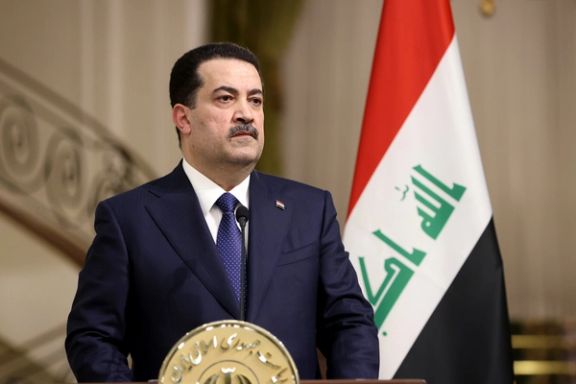
While Iran’s IRGC has launched missile attacks on Iraq’s Kurdistan region, Iraqi Prime Minister says his government will not allow its territory to be used to “harm any side.”
Mohammed Shia' Al Sudani made the comments Tuesday in a meeting with Iranian President Ebrahim Raisi as part of his visit to the Iranian capital.
The Iraqi official said, “It is the policy of the Iraqi government that this country should not be the starting point for actions harming the countries of the region.”
In the meeting, Ebrahim Raisi claimed the Islamic Republic supports a united and strong government in Iraq.
Raisi said relations between Tehran and Baghdad must be expanded to establish more peace and stability in the region and the world.
Since the eruption of nationwide protests in Iran, regime officials have accused Kurdish opposition groups in northern Iraq of fueling the unrest, with the IRGC repeatedly launching deadly attacks on the neighboring country’s northern territories.
The latest round of shelling of Iraqi Kurdistan region drew condemnation by Western countries as well as the Iraqi government.
Iraqi Foreign Minister Fuad Hussein decried the attacks as a violation of Iraq's sovereignty and Kurdistan Region Prime Minister Masrour Barzani also condemned the “violations” of Iraq and its Kurdish region’s sovereignty.
The US also strongly condemned Iran’s “violations of Iraqi sovereignty”, calling on the Islamic Republic to stop attacking its neighbor.

The Israeli Air Force will hold large joint drills with the United States to simulate strikes against Iran’s nuclear program.
Releasing a statement on Tuesday, the Israel Defense Forces announced that the joint aerial wargames with the US military is to practice strikes against the Islamic Republic and its proxies in the region.
The two-day drills will be launched on Tuesday over parts of Israel and theMediterranean Sea, and include long-range flights needed by Israeli pilots to undertake to reach Iran.
The maneuvers come after IDF chief Aviv Kohavi visited the USlast week urging the defense officials that the two countries must speed up joint plans for offensive actions against Iran.
“In order to improve our capabilities in the face of challenges in the region, joint activity with the US Central Command will be significantly expanded in the near future,” Kohavi said after returning to Israel.
The Islamic Republic began enriching uranium to 60% purity at its Fordow nuclear plant last week, saying the move was in response to the resolution criticizing its lack of cooperation with the IAEA.
That purity is below the 90% needed for weapons-grade material but well above the 20% Iran produced before its 2015 agreement with major powers that capped enrichment at 3.67%.
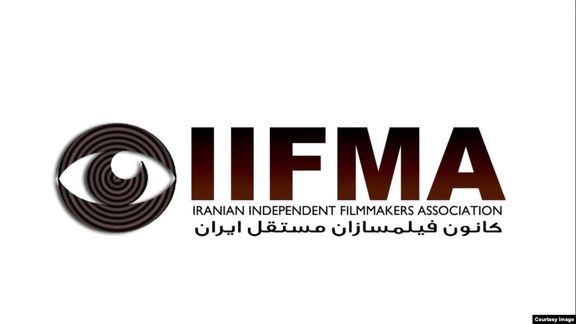
A group of Iranian filmmakers have formed a new entity called “Iranian Independent Filmmakers Association” in support of the antigovernment protest movement.
In their statement on Monday four issues have been raised as the goals of the association.
Preventing repression and violence against peaceful protesters and innocent children, unconditional release of prisoners, drawing the attention of the world's filmmakers to events in Iran and “exposing the tactics of propaganda machine of the Islamic regime” are announced as the main goals of the group.
“Iranian protesters chant ‘Women, Freedom, Life’ and are being beaten, shot, arrested, tortured, and executed in every corner of their country by regime’s security forces. During this fateful and historical time, we, a group of independent filmmakers, who believe in the universal language of cinema as a powerful narrator of truth and peace, have come together to seek [our objective],” reads the statement.
The government tried to influence and control official associations representing filmmakers, artists or professionals.
Adeleh Cheraghi, one of the spokespersons of this association, told BBC Farsi that so far more than fifty Iranian filmmakers have become members of the group, including Shirin Neshat, Mostafa Azizi, Abdul Reza Kahani, Nima Sarvestani, Kaveh Farnam and Ali Abbasi.
According to her, the names of some members of the association will be published later “due to the existing security conditions and repression” inside and outside Iran.